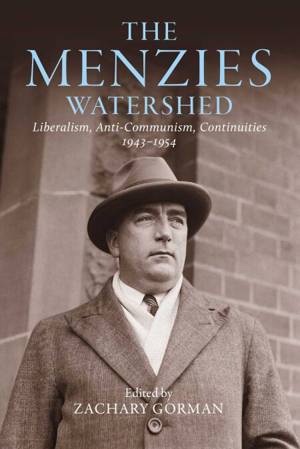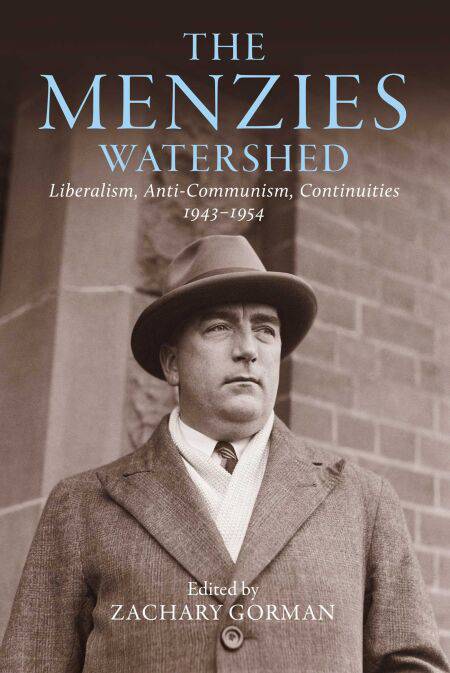
- Afhalen na 1 uur in een winkel met voorraad
- Gratis thuislevering in België vanaf € 30
- Ruim aanbod met 7 miljoen producten
- Afhalen na 1 uur in een winkel met voorraad
- Gratis thuislevering in België vanaf € 30
- Ruim aanbod met 7 miljoen producten
Menzies Watershed E-BOOK
Liberalism, Anti-communism, Continuities 1943–1954
Zachary Gorman
E-book | Engels
€ 19,00
+ 19 punten
Omschrijving
The eleven years that passed between the 1943 and the 1954 elections were arguably some of the most pivotal in Australian history. This was a period of intense political, policy and strategic transition, which saw a popular Labor Government and its state-led vision for post-war reconstruction toppled by Robert Menzies and his newly formed political machine, the Liberal Party of Australia. Meanwhile, a backdrop of rising Cold War tensions came to dominate domestic and international policymaking, ushering in a divisive communist party ban, the ANZUS treaty, the Colombo Plan, and Australia's own agency of international espionage, ASIS. But what was the difference in practical terms between Menzies and his predecessors? What role was the state to play under a centre-right government, and would Menzies be able to live up to the liberal ideals with which he had won over the Australian public? All these issues are explored in the second of a four-volume history of Menzies and his world, based on conferences convened by the Robert Menzies Institute at the University of Melbourne. Contributors include Christopher Beer, Andrew Blyth, Troy Bramston, Lorraine Finlay, Nicolle Flint, David Furse-Roberts, Anne Henderson, David Lee, Lucas McLennan, Lyndon Megarrity, Charles Richardson, William Stoltz and Tom Switzer.
Specificaties
Betrokkenen
- Auteur(s):
- Uitgeverij:
Inhoud
- Aantal bladzijden:
- 256
- Taal:
- Engels
Eigenschappen
- Productcode (EAN):
- 9780522880243
- Verschijningsdatum:
- 27/11/2023
- Uitvoering:
- E-book
- Beveiligd met:
- Adobe DRM
- Formaat:
- ePub

Alleen bij Standaard Boekhandel
+ 19 punten op je klantenkaart van Standaard Boekhandel
Beoordelingen
We publiceren alleen reviews die voldoen aan de voorwaarden voor reviews. Bekijk onze voorwaarden voor reviews.










